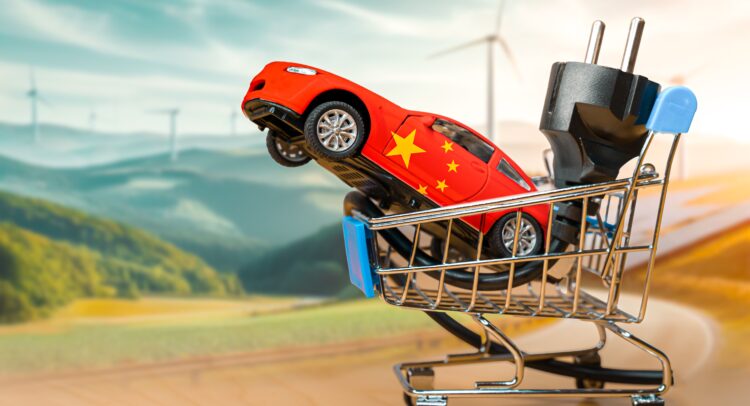The Biden administration is expected to announce a significant increase in tariffs on Chinese goods, including electric vehicles (EVs). This move raises concerns about inflation, potentially complicating the Federal Reserve’s efforts to curb price increases.
While the U.S. automotive industry may enjoy the breathing room tariffs provide, market participants should also ask themselves: Will these tariffs translate to higher prices for American consumers? Economists and historical evidence suggest tariffs will result in a double blow, as they could directly and indirectly lead to higher inflation.
How Tariffs Directly Raise Prices
The most immediate consequence of tariffs is a direct rise in the overall price of imported goods. A tariff acts as a tax levied on imported products, making them more expensive for American businesses and consumers.
According to the Tax Foundation, a reputable source for tax policy analysis, tariffs “reduce available quantities of goods and services.” This translates to a supply squeeze, where fewer Chinese EVs become available in the U.S. market. Basic economic principles dictate that when supply goes down and demand remains constant, prices tend to rise.
With EVs being the primary focus, the anticipated tariff increase on Chinese EVs is set to quadruple from 25% to approximately 100%. Additionally, tariffs are expected to extend to batteries and solar panels, both sectors highlighted by the Biden administration as nationally important.
Tariffs Indirectly Lead to Inflation
Tariffs will also indirectly lead to U.S. inflation beyond the items targeted. A potential consequence of any tariff program is a strengthened U.S. dollar. So, with import costs rising due to tariffs, American consumers might choose to buy fewer Chinese goods. This reduces demand for the Chinese yuan, the Chinese currency. Consequently, the value of the U.S. dollar might appreciate relative to the yuan.
While a stronger dollar might sound positive on the surface, it has an inflationary effect. U.S. exports become more expensive for foreign buyers, potentially leading to a decline in American exports. This can stifle economic growth and put upward pressure on domestic prices.
Key Takeaway
The expected large tariff hike on Chinese EVs could increase inflationary pressures. The Federal Reserve may have to account for additional price pressures in its monetary policy. The direct inflationary impact is a rise in the price of EVs, batteries, and solar panels for American consumers.
However, if the tariffs were to lead to a stronger dollar, making U.S. exports less competitive and potentially contributing to broader price increases across the economy, the economic impact would extend beyond protecting America’s “sustainable” industry.
















